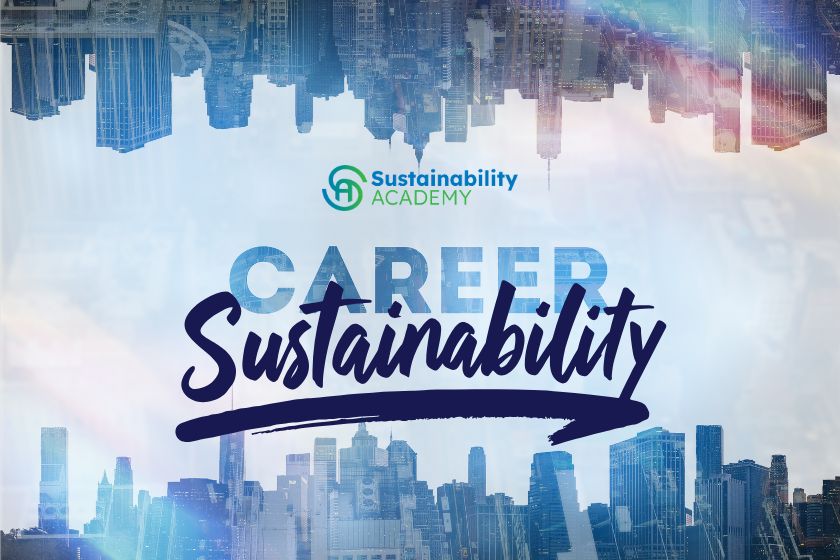The sustainability profession is evolving at a rapid pace. A decade ago, success often meant drafting reports, tracking emissions, and setting long-term goals. Today, those foundational skills still matter, but companies are increasingly demanding more. Sustainability careers now require professionals who can turn ambitious promises into measurable, tangible outcomes.
This shift is redefining what it means to thrive in sustainability and at the center of that transformation is a new skill set: action-oriented capabilities.
The Rise of Action as the New Currency
For years, companies made headlines by pledging net-zero emissions by 2050 or committing to the Paris Agreement. However, ambition without execution no longer satisfies investors, regulators, or the public. The focus has moved from setting goals to proving progress.
A recent article from the Harvard Law School Forum on Corporate Governance emphasized the growing gap between what companies promise in their ESG disclosures and what they deliver in practice. Many firms publish detailed sustainability reports, yet fall short in operationalizing those commitments (Harvard Law School Forum).
This gap has created a clear demand: companies want professionals who can bridge the divide between declarations and delivery. It’s no longer enough to understand sustainability—you must be able to implement it.
Action-Oriented Skills in Practice
Delivering real change requires more than strategy—it calls for hands-on implementation. Today’s high-performing sustainability professionals are collaborating with procurement teams to embed ESG criteria into contracts, managing projects that reduce energy costs or carbon footprints, working with product designers to create sustainable offerings, and navigating compliance frameworks such as the EU’s Corporate Sustainability Reporting Directive (CSRD).
These are not theoretical tasks—they are operational imperatives that directly influence a company’s performance and reputation.
How These Skills Are Shaping Sustainability Careers
While reporting and disclosure remain essential, they no longer define the field. Increasingly, sustainability roles require cross-functional influence and technical execution.
According to Reuters, many corporate leaders admit to facing “extreme gaps” in digital and data skills. This limits their ability to effectively use AI, analytics, and automation in sustainability efforts (Reuters). Professionals who can interpret data, manage Scope 3 emissions, and assess climate risk are in especially high demand.
These aren’t just sustainability roles—they often intersect with operations, procurement, finance, and risk management. The professionals who can answer questions like “How do we reduce emissions across our value chain?” or “How do we prove resilience to investors?” are the ones advancing fastest in their sustainability careers.
Building Stronger Action-Oriented Skills
Technical knowledge is critical, but influence and communication are just as vital. Sustainability professionals must speak the language of finance and operations, frame initiatives in terms of risk reduction and cost efficiency, and use data storytelling to shift decision-making.
A study published in Frontiers in Sustainability found that professionals who combine technical expertise with strong communication skills are significantly more effective at demonstrating impact and driving change. It’s not enough to collect data—you must present it in a way that influences action (Frontiers in Sustainability).
Additionally, facilitation and stakeholder alignment are key. Cultural barriers often matter more than technical ones. Sustainability champions must be able to guide challenging conversations, bridge departmental silos, and inspire collective movement toward goals.
Why Demand Is Rising for Action-Oriented Professionals
The sustainability job market is expanding rapidly. According to The Times, the number of professionals with “green skills” grew by over 12 percent from 2022 to 2023, and green jobs have increased 8 percent annually for the past five years (The Times).
Simultaneously, new regulatory requirements—like the CSRD in Europe and climate-related disclosure rules in the U.S.—are raising the bar for transparency, governance, and accountability. As the World Economic Forum notes, sustainability is no longer a side function. It is integrated into every layer of organizational decision-making (World Economic Forum).
All of this means companies are no longer hiring for potential—they’re hiring for capability.
Q&A: What Sustainability Professionals Need to Know
Q1: Why are action-oriented skills so important for sustainability professionals?
Because companies no longer want promises—they want proof. These skills allow professionals to move beyond reporting and drive measurable improvements in operations, supply chains, and strategy.
Q2: How can I develop stronger action-oriented skills?
Link sustainability to business outcomes. Seek hands-on project experience. Strengthen your communication and data storytelling abilities. Consider formal certification programs to deepen and validate your skill set.
Q3: What sustainability careers opportunities exist for professionals with these skills?
Opportunities exist across sustainability, procurement, finance, risk management, operations, and more. As ESG becomes embedded across the enterprise, professionals who can execute and influence are in high demand.
Developing Your Capabilities: Certification and Beyond
If you want to boost your action-oriented sustainability skills, several paths are available. On-the-job project experience with supply chain or operations teams can help. Mentorship or shadowing within ESG leadership roles also builds confidence. But formal training and certification programs are often the most effective way to deepen expertise, strengthen sustainability careers, and signal credibility.
Your best option is the Certified ESG Courses offered by the Sustainability Academy, developed by the Centre for Sustainability and Excellence (CSE). These self-paced, CPD-accredited programs include real-world case studies, video lessons from experienced practitioners, and access to CSE’s annual ESG ratings research.
Why choose Sustainability Academy Certified Courses?
- Offer a unique Certification accredited by CPD in an affordable manner trusted by global Fortune 500 companies and global accounting firms for their staff education
- Content created by Sustainability thought leaders, professors and trainers with practical experience in the field of sustainability
- Self-paced Courses that can be completed anytime within 45 days
- Up-to-date content revised on annual basis that includes new legislations and trends based in field research
- Joined by thousands of learners from 90 countries, including Sustainability professionals, graduates and entrepreneurs from various sectors
- Receive your certification and badge via Credly, which is valid for one year. You can share your badge directly from Credly to LinkedIn, Twitter, and Facebook; over email; embedded in a website or in your email signature.

